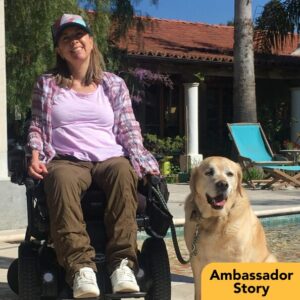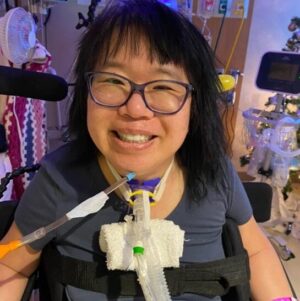COVID-19 changed everyday life for most of us in some way—but for our client Samantha Youmans, it changed everything.
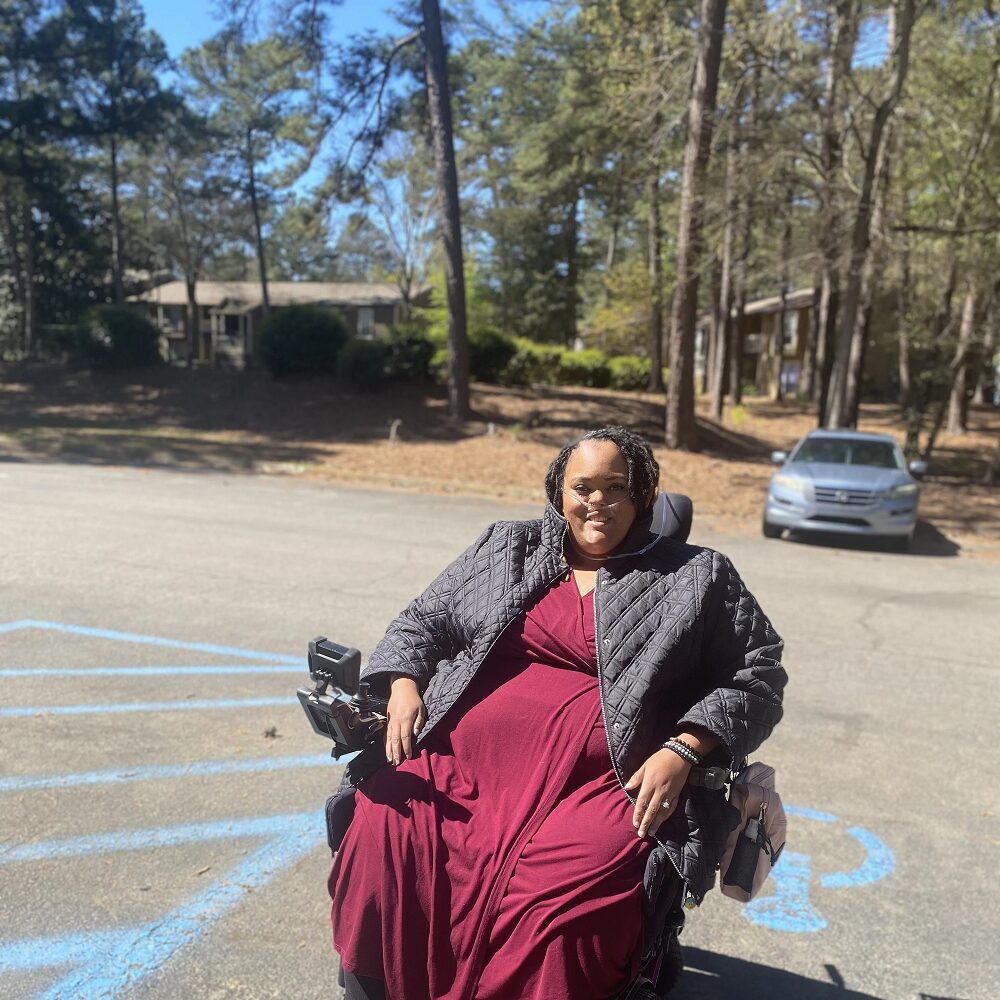
Living with muscular dystrophy, Samantha experienced a COVID medical crisis while working from home in 2021 and was placed in a medically induced coma for seven days.
She awoke from the coma confused, overwhelmed, and unable to walk with her personal mobility drastically changed.
Today, Samantha is a content creator who fundraises with Help Hope Live for mobility essentials and other medical expenses and related costs and seeks out the rainbows that follow the storms. This is her story.
How had muscular dystrophy impacted your life before COVID?
Muscular dystrophy impacted my life a lot: I struggled with walking, so growing up, that made me not want to go out in public and not make a lot of close friends.
I would fall a lot in school. Other kids really did not understand.
I just tried to keep pushing forward, but it made me less likely to go out, spend time in the community, and connect with other people.
Tell us about your career prior to 2021.
In 2018, my husband—a National Guardsman—was about to be deployed. As a precaution, we made the decision that it would be best for me to work from home.
We were so worried about what could happen to me, especially since there was not that much information on how COVID-19 could affect someone with my diagnosis as the pandemic began to take hold.
I ran my own business from home and worked remotely as a Senior Technical Support Advisor for Apple.
I later began working in-person for Peacock Hyundai of Columbia in Business Development, assisting with business sales retention and customer service for the sales team.
It was fun and rewarding. I loved what I did.
I was able to help people and help them buy things— I love shopping, so you can understand why I enjoyed it!
It filled my heart with joy when a customer would come in and ask to speak to me or when I was mentioned in a sales review.
What does your husband’s work life look like?
Justin is always on standby. If his unit needs something outside of his work days, he is called in to help, and his civilian job is the same—both keep him very busy.
It does get difficult at times when I require assistive care. We sometimes clash, as any couple does, but we have found a happy and healthy medium for us.
I am very thankful for his support and daily encouragement.
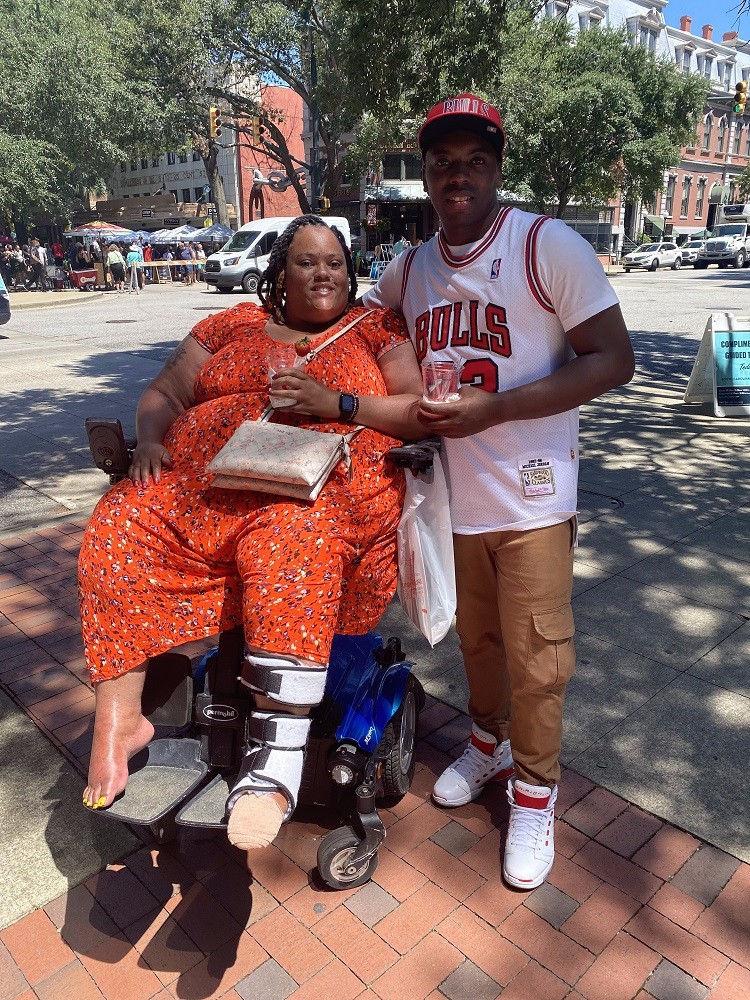
Tell us about the medical crisis you experienced.
Thinking about this really brings so much back to me in a flash.
It was August 9, 2021—four days before my 27th birthday.
I was working from home that day from 2 to 11 p.m. In the middle of my shift, I began to feel a little sad and sleepy. I figured that either my vitamin D was low, or my depression was getting the best of me—I live with mental health issues, so that experience was not out of the norm for me.
I messaged my boss and let him know I needed to take the day off. I made my “daily commute” from my office bedroom to the kitchen to eat something, and I took a shower and went to bed.
At around 10 p.m. that night after I had fallen asleep, my mother called to check if I received a birthday gift in the mail. I answered the phone grumpy—as I usually am when I wake up from a rest!
My mom instantly said that something seemed off, and she told me to go to the ER.
I felt fine, so I just went back to sleep. She called again a few hours later and insisted that either I go to the ER myself or she would drive from out of town to take me there herself.
That really scared me.
I called 911, and I sat on the edge of my bed waiting for paramedics to arrive.
In those five or 10 minutes before they got to my apartment, I could hardly walk and I felt so weak.
My husband was working overnight, so I couldn’t talk to him beyond a short text here or there.
By the time I got to the ER, I was put on a BiPAP breathing machine and got tested for COVID right there on the stretcher. I stayed on the phone with my mom. A doctor told me I had the Delta variant, or SARS-CoV-2 . I was placed in a medically induced coma at 3:12 a.m.
If I had gone to sleep that night instead of going to the ER, I may have never woken up.
From that moment on, it has been an uphill battle.

What happened when you woke up from the coma?
When I woke up seven days later, I experienced what’s been called “the COVID fog.”
It was like my reality had been altered.
In this fog, I thought the sign I could see outside said “Tokyo” as in “Tokyo, Japan.” I told my husband I had been kidnapped, put on a boat, and relocated. I didn’t recognize other people, and I was so scared.
I was told that after the coma, I kept trying to get out of bed, not realizing that I could not move my body like I once did. It took me another entire week to start to understand these things.
During this time, my husband was in a different country, adding another level of struggle.
When I first realized I couldn’t move like I did before, I cried.
I fought with the doctors to have testing done—MRIs, CAT scans—but there was nothing they could find that could fully explain the change in my mobility. It was just something I had to live with.
Imagine going to sleep and then, poof: you wake up and can’t do a simple little task.
I couldn’t sit up by myself. I couldn’t even hold my head up to drink a sip of water. I was devastated.
Over the following month, my mother helped my husband to make a lot of medical decisions to support me. My family checked up on me, and a few of them were very present for me. I am not sure if I would have been able to mentally get stronger if it wasn’t for my big sister, Nicole; my cousin, Rhett; my grandparents, and my mom.
They were my village.
How have these experiences impacted your mental health?
After the coma, once I started understanding how much my body had been through, I realized I was not the same person physically as I was before. I fell into a really deep depression.
I was diagnosed with depression and severe anxiety at an early age due to both childhood events and some events in adulthood. After this medical crisis, my mental health took a fall.
I grieved the loss of my health like I lost my best friend.
To go from walking (with some struggles) to being told I would never walk again took a toll on me. I questioned my existence and my faith, and it was hard on my marriage. It took some counseling to help.
Today, I have rough days, but things are better.
I have grieved fully, and now, I am more focused on what I can do instead of what I cannot do.
I have a strong faith in God. Without His love, I would not be here sharing these words.
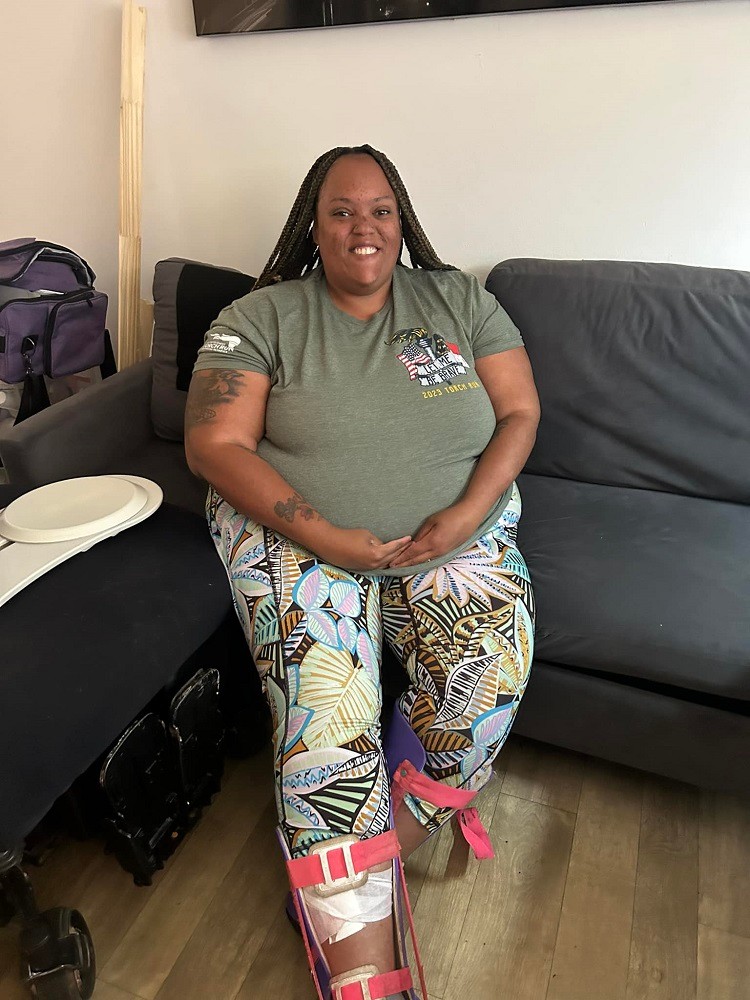
What was it like returning home from the hospital?
Coming home, I was suddenly dependent on supplemental oxygen 24/7—the medical crisis had left me with lung scarring. I was not happy toting around oxygen tanks.
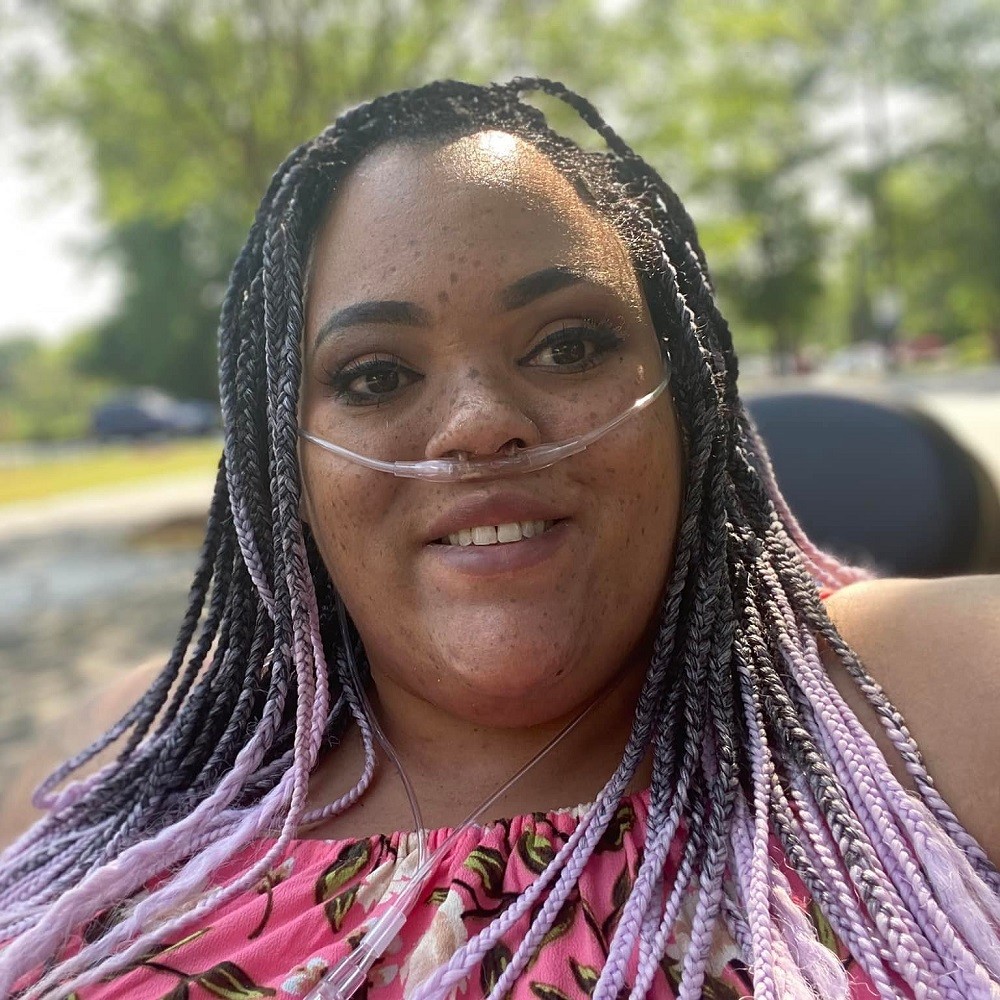
It wasn’t what my doctors recommended, but I would try not to wear my oxygen mask to strengthen my lungs, only using it again when I felt weak.
Today, I am proud to say that I no longer wear any supplemental oxygen during the day.
I sleep with a machine to help support my weakened diaphragm, which helps me ensure I still get enough lung support while my muscles are at rest. One day, I hope to be off that machine, too.
How did your diagnosis impact your career?
I loved what I did, so it was difficult to move away from that career and begin living on disability. I started investing my time into going to nail school as a new career path.
During my recovery time, I had started making my own press-on nails. I did not like the changes my body was going through, so I needed to do something to make me feel pretty again. Doing my nails gave me that escape.
I am now excited to venture into this new career as a nail technician. I am a creative person and a social person, so this is a new fit for me and a new passion.
I want others with similar diagnoses to see that their physical abilities do not define who they are.
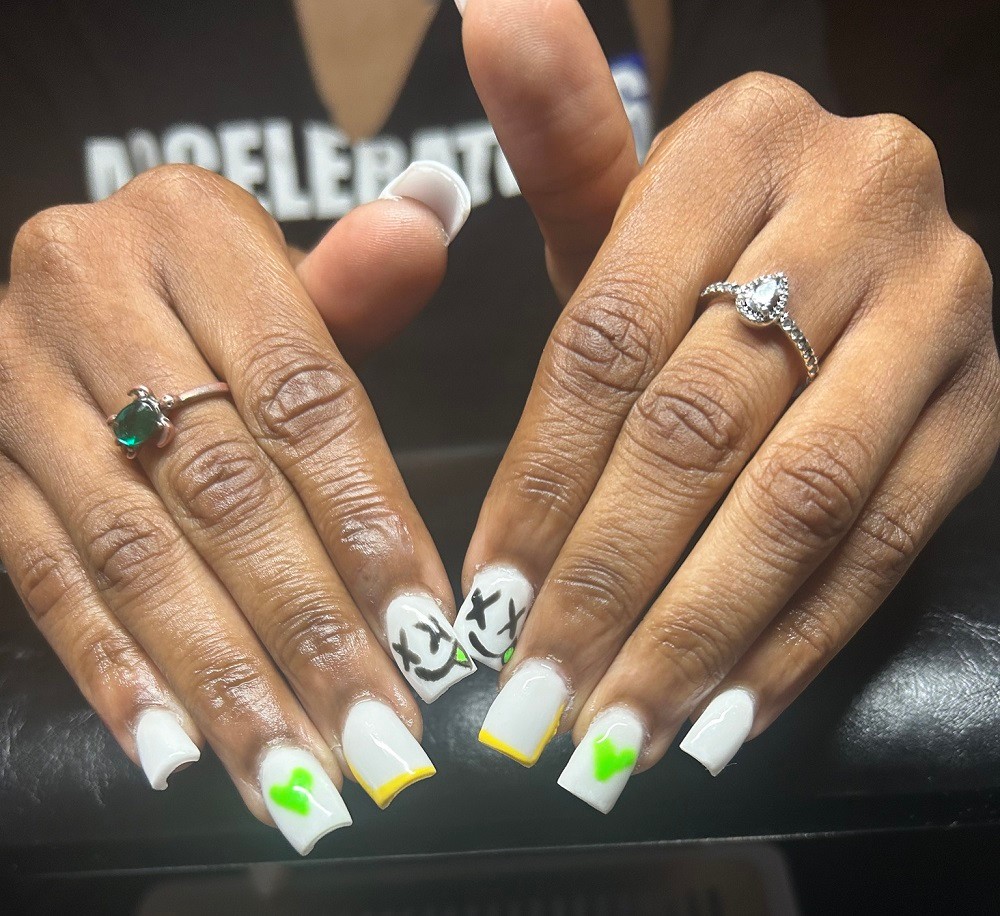
Why did you start fundraising with Help Hope Live?
I had never heard of Help Hope Live until I started rehabilitation. My physical therapist mentioned it to me, so I started to do my own research.
I felt that GoFundMe was not reliable: anyone could make a campaign for anything, including non-medical and non-verified reasons.
Help Hope Live gave me a platform to raise funds that had verification behind it. I loved that.
I appreciated having to send in paperwork as a verification step so that my supporters would know exactly where their donations were going.
I know that with the integrity that Help Hope Live upholds, I have a platform I can always utilize when things get hard and my medical expenses get out of hand.
How has fundraising made a difference in your life?
I finally have my own accessible transportation! I am able to go out in town or visit my family, which is so important to me.
Living in a city where there aren’t accessible services, it was hard to stay mobile, and wheelchair vans cost a pretty penny out of pocket.
Raising funds allowed me to feel normal again, and I was able to access the freedom of travel and no longer be confined to my apartment.
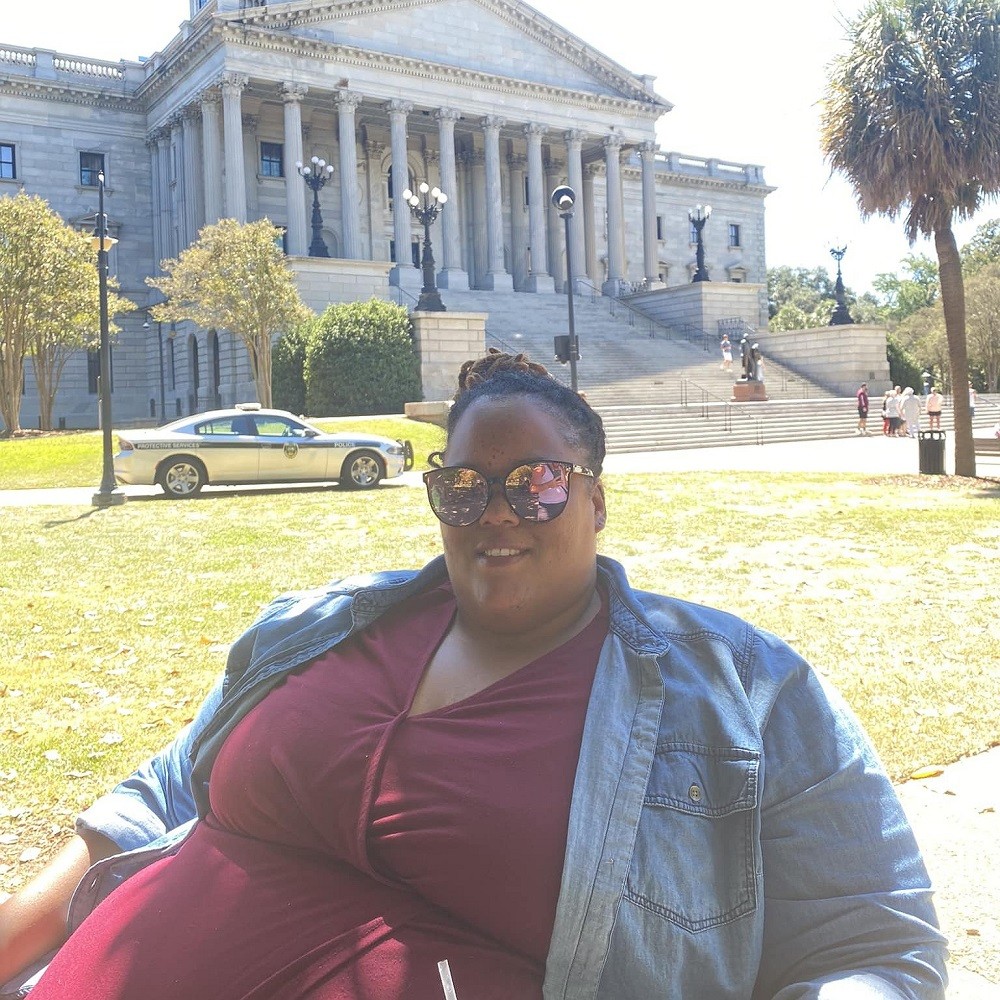
I was also able to access community resources and do what I could to help my community in return.
I am just very thankful for Help Hope Live’s platform.
Having access to accessible transportation meant being able to go to physical therapy, see my pulmonologist, and even get life-changing gastric bypass surgery.
I wanted to lose weight to improve my health, and post-surgery, I have lost around 90 pounds. I have done so well in physical therapy that I am now able to transfer out of my wheelchair with little or no help.

Looking back, has this crisis impacted your life in any surprising ways?
When I say this to people, they think I am crazy—but God placing me into this position, and becoming a full-time wheelchair user, was the best thing that has happened to me for my health.
What I went through was horrific, but I already struggled before this crisis. I was just so hard-headed that I did not want to use any durable medical equipment.
I think this is God’s way of telling me to literally SIT DOWN.
Prior to this crisis, I would not go to the movies or go to the store because of my struggles with walking, bending, and moving. It was taxing on me. Now, I can get in my wheelchair and do so much more with confidence. Just yesterday, I cleaned out my whole fridge by myself.
There are still things I can’t do fully by myself, like bathing and washing my laundry, but those things do not rob me of the gratitude I feel today for what I CAN do.
What are some of the qualities you are most proud to have today?
My resiliency is important to me. It takes a lot to go through what I went through and accept it. I know people I have met through social media who mentally could not handle what they experienced, and they are no longer here with us.
When I think about all that I have conquered, I feel proud. I DID IT! No one else but me.
My faith is another quality that’s important to me. Through my faith, I have been able to overcome so much. Shoutout to God.
Lastly, my personality is special to me. Because I treat others right, I get a lot of love poured back into me.
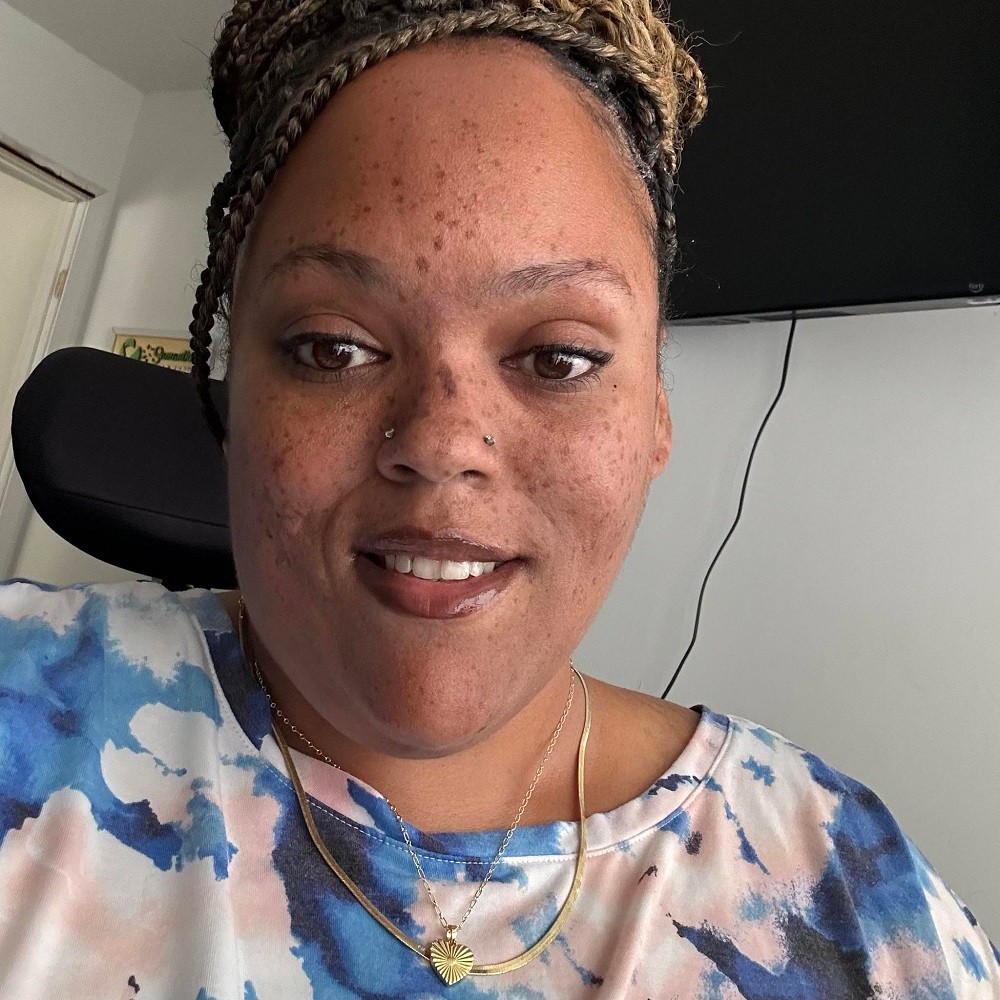
What does hope mean to you?
Hope means being optimistic—knowing the current situation is not great, but things ARE going to get better. Hope allows someone to change their thought process and even turn bad into good.
I want to leave this piece of encouragement for others:
Things may be tough, but remember that after every storm, there is a rainbow.
Feel free to find me on Facebook and connect with me. I am always up for being the sunshine in someone’s day.
You can find Samantha’s Campaign Page and donate at helphopelive.org. Follow her Mantha’s Nail Studio business on social media.

